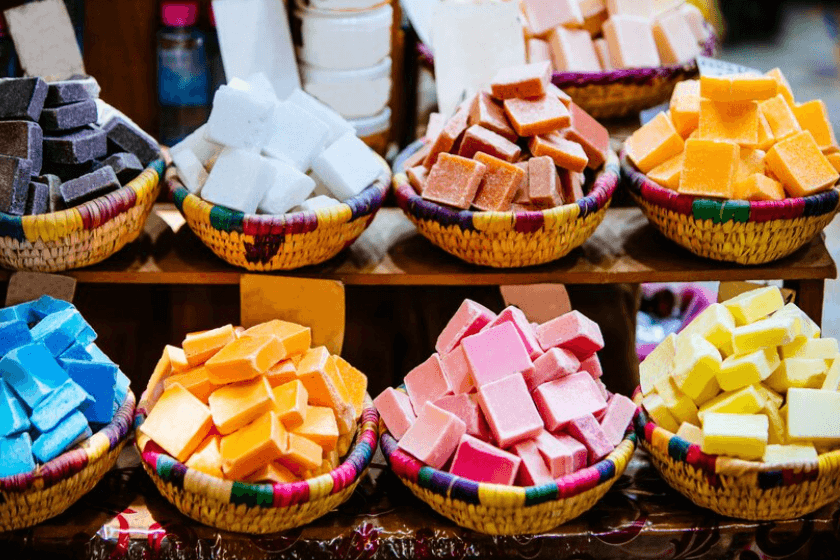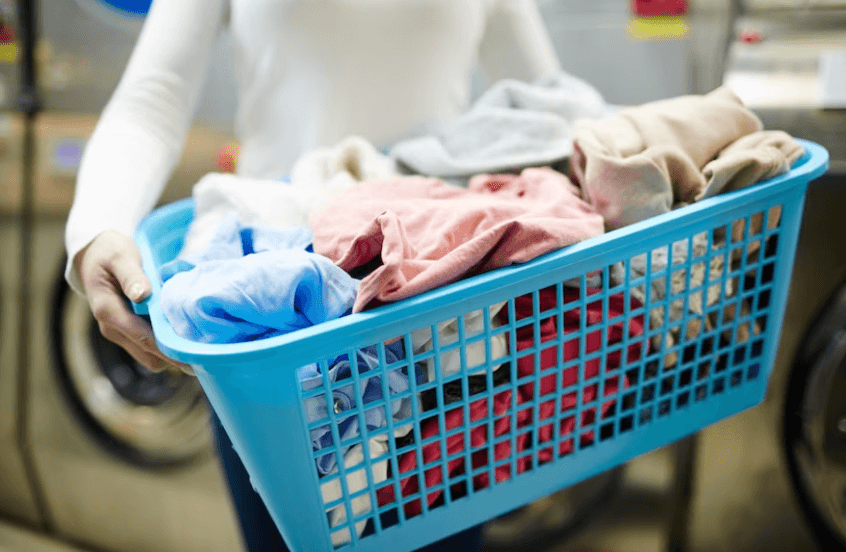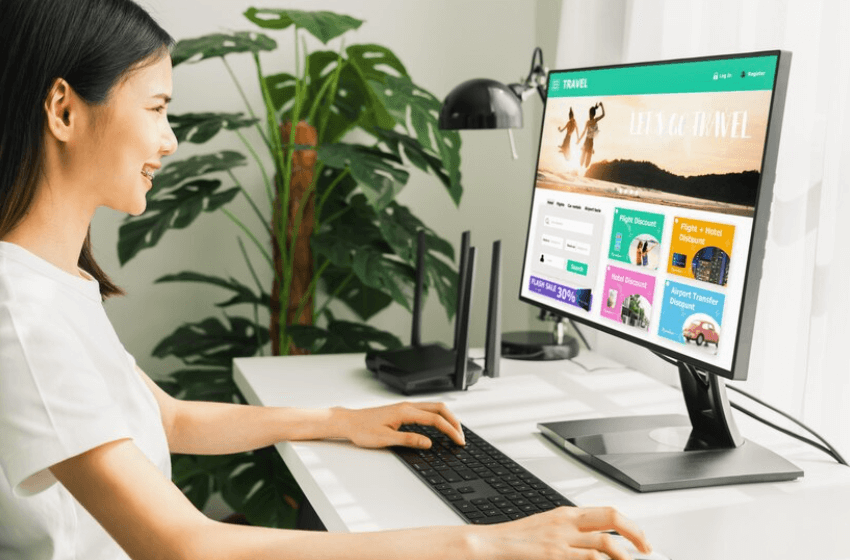The 20 Most Profitable Small Businesses you can Start in the Philippines
Key takeaways:
- The Philippine economy is projected to grow by 5.3% by the end of 2023. As the Philippines returns to a sense of normalcy, a favorable environment for business is emerging.
- You may begin some small businesses with a capital of ₱0 to a few thousand pesos by leveraging the resources you already have.
- Researching your market, developing a solid business plan and registering your business are some of the things you need to do to ensure your small business success.
Who can get a Digido loan?
Table of Contents

List of 20 Small Businesses with a Small Capital in the Philippines
The Philippine economy, while still recovering from the pandemic’s impact, has shown an impressive growth by 7.6% in 2022 and is projected to continue to grow by 5.3% by the end of 2023 [1]. As life regains its pace in the Philippines, a favorable environment for business is emerging.
This sets the stage for budding entrepreneurs to step in. Starting a business in the Philippines, even with a small capital, allows you to ride the momentum of recovery and contribute to the growing opportunities.
Beginning a business venture, no matter how small, can be a significant turning point in your life. It offers you the chance to shape your financial future from scratch. If you’re among those considering entrepreneurship but unsure where to begin, or if you’re looking to supplement your current earnings, we’ve curated a list of small businesses in the Philippines requiring a small capital.
These ideas span various skills and interests, helping you discover your entrepreneurial path. Among these ideas, you’ll find both established and proven concepts, as well as innovative options that align with the evolving post-pandemic landscape of the Philippines.
With determination and a smart approach, these small business ideas can lead you toward your entrepreneurial goals. Now let’s find out what the best small business in the Philippines will be.

Small Business ideas in Retail and Trade
1. Sari-Sari Store
- Capital Needed: ₱10,000 – ₱50,000
- Tools and Resources Needed: Shelving, initial inventory of basic goods (canned goods, snacks, toiletries), cash register or ledger, store signage.
- Skills Needed: Basic inventory management, customer service
At the heart of Filipino neighborhoods, the sari-sari store stands as a cornerstone, providing an assortment of everyday necessities. Ranging from colorful stacks of snacks to toiletries and school supplies, they cater to their community’s needs, mainly locals and neighbors. It’s one of the most common small businesses in the Philippines
In a 2022 study by Kantar, following the spending patterns of 5,000 local households, 41 percent of fast-moving consumer goods (FMCG) were procured from local sari-sari stores [2]. This marked a 6% rise compared to the 2020 data. These figures firmly establish the enduring demand and their significance for years to come for Filipino communities.
To start a sari-sari store business, gather an inventory of products for sale with a capital that may range from ₱10,000 to ₱50,000. Consider sourcing from wholesale supermarkets or Divisoria, both reputable options for stocking up. Your expenses will depend on the range of items you plan to offer.
With the community being your clientele, nurture loyalty through personal connections and attentive service. Keep your prices competitive and embrace digital payments to cater to evolving habits.
- Get up to PHP 25,000 in just 5 minutes
- Only one government ID is required
- Simple application process
- Instant fund transfer

2. Cellphone Loading
- Capital Needed: ₱2,000 – ₱10,000 (initial load credits)
- Tools and Resources Needed: Mobile phone, prepaid load credits, retailer SIM card
- Skills Needed: Basic math skills, familiarity with mobile networks
Filipinos heavily rely on mobile phones, creating a demand for prepaid load. In 2022, the number of mobile subscribers in the Philippines amounted to about 153 million [3].
An e-loading business is straightforward – you sell this load to customers, making a profit. It’s an entry-level opportunity accessible to most. You can start this small business in the Philippines with a 4k capital or even less. While it’s not the most profitable business out there, it demands simpler operations (without the physical inventory and store), for as low as ₱2,000 to start with.
Start your e-loading business by buying prepaid cellphone load from providers like Globe, Smart, or third-party distributors such as Coins.ph and Load Central. You may also opt to purchase another phone to use for load transactions. Once you start operating, offer various load denominations to cater to different customers and advertise your loading station through visible signage.

3. Ukay Ukay
- Capital Needed: ₱10,000 – ₱50,000 (initial inventory)
- Tools and Resources Needed: Secondhand clothing inventory, display racks, location with foot traffic
- Skills Needed: Fashion sense, bargaining skills, customer interaction
Ukay-ukay, which translates to “thrift shop,” draws from a range of sources – including excess donations from wealthier nations and overruns from overseas retailers. While it doesn’t entirely solve the fast fashion issue, it’s gaining traction among eco-conscious Filipinos seeking sustainable alternatives. The diverse inventory and budget-friendly fashion choices are gradually making it a more appealing option for a growing number of Filipinos looking for stylish clothing for less, making it a great small business to start in the Philippines.
There are many places where you can find second-hand clothes. You can buy them from ukay ukay bales and wholesale sellers online and get an initial inventory for ₱10,000 to ₱50,000. Once you find a supplier, negotiate a comfortable price for both of you. Once you set up shop, regularly update your inventory to keep up with trends. Offer discounts and promotions to encourage repeat customers. You may also create themed displays to make shopping an engaging experience.
4. Rice Retailing
- Capital Needed: ₱50,000 – ₱100,000
- Tools and Resources Needed: Rice inventory, weighing scale, storage containers, signage
- Skills Needed: Basic accounting, inventory management, customer service
The rice retailing business holds significant value in the Philippines, where rice stands as a staple commodity. It’s an essential element of our meals, an indispensable presence on our tables, and a constant item on people’s shopping lists.
Setting up a rice retailing venture requires a relatively modest initial investment but if you’re thinking about profitability, consider that there are a lot of restaurants and eateries that buy rice in bulk for their daily operations.
You may procure rice directly from rice mills or wholesalers to secure favorable pricing. Select a supplier located near your place of business for easier order placement. Many rice wholesalers offer delivery to your area upon meeting their minimum order criteria. Another important thing to know is to be able to start a rice dealership, you must secure a certificate from the National Food Authority (NFA).

5. Junk Shop/Scrap Business
- Capital Needed: ₱50,000 – ₱100,000
- Tools and Resources Needed: Weighing scale, collection vehicle, sorting area, contact with recycling centers
- Skills Needed: Knowledge of recyclable materials, negotiation skills, basic business management
A junk shop business is more than a trade; it’s a way to turn discarded items into opportunities. As the awareness of the environmental impact of waste grows, starting a junk shop business will not only be profitable to you as a business owner but also to garbage collectors and for people who practice recycling.
To begin this venture, you first need to find a space to set up shop. Make sure that the space is spacious to contain all the junk and scrap that you’re trading and this is where the bulk of your cost will go. It is crucial to build good relationships with your suppliers and your clients. Your suppliers will be the businesses with leftover materials you can sell and the scavengers who you can provide push carts or karitons to make their work easier. Your clients will be recycling centers who need the items you gathered to be sorted and separated properly.

6. Homemade Skincare/Beauty Products
- Capital Needed: ₱5,000 – ₱20,000
- Tools and Resources Needed: Ingredients for beauty products, packaging materials, labeling, marketing channels
- Skills Needed: Knowledge of natural ingredients, product formulation, creativity in packaging
Homemade beauty products are soaring in demand in the Philippines – may it be soap, make-up or beauty creams. The appeal stems from the personal touch. Be it tackling humidity-triggered breakouts, managing sun-induced uneven skin tone, or combatting the toll of pollution on the skin, homemade beauty products crafted by people who encountered the same challenges hold a unique edge.
Starting your homemade beauty business means grasping common Filipino skincare issues and crafting natural solutions that cater to local needs. Invest time in meticulously formulating and testing your products, utilizing your network’s insights to improve effectiveness. Capitalize on your personal story and passion for your products to connect with potential customers. Above all, prioritize the safety and health regulations compliance of your offerings. Initial capital might vary between ₱5,000 to ₱20,000, with a constant requirement to secure raw materials. Yet, fueled by your passion and solid marketing, this endeavor can evolve into an additional income stream worth exploring.
Small Business in Food and Beverage Production in the Philippines

1. Carinderia/Home-Cooked Meals
- Capital Needed: ₱5,000 – ₱15,000
- Tools and Resources Needed: Kitchen appliances, cooking utensils, ingredients, food packaging, delivery mode (motorcycle or bicycle).
- Skills Needed: Cooking skills, menu planning, basic food safety and hygiene.
Offering affordable Filipino cuisine, carinderias are a sought-after dining option for the masses. A carinderia is one of the 20 most common small businesses in the Philippines. Launching one requires minimal capital, especially if you set it up at your own premises. While fast food has its place, the appeal of carinderias lies in their authenticity and cost-effectiveness. Patrons flock to these eateries for budget-friendly, home-cooked meals that remain unmatched by larger establishments.
Gather your initial capital, typically around ₱5,000 to ₱15,000, to cover ingredients, utensils, cooking equipment, business permits, and rental space. However, if you’re setting up this small business at home in the Philippines, a substantial capital may not be necessary. Develop a simple menu featuring popular Filipino home-cooked dishes including options with vegetables, fish, chicken, pork, and beef. Aim for variety by rotating your menu daily. Keep prices affordable to maintain customer loyalty and attract new patrons, balancing profitability with accessibility for the masses.

2. Pastry Business
- Capital Needed: ₱20,000 – ₱50,000
- Tools and Resources Needed: Baking equipment, ingredients, packaging materials, display cases, social media platforms.
- Skills Needed: Baking skills, creativity in pastry design, basic business management.
In the wake of the COVID-19 pandemic, countless food establishments faced closures, prompting the rise of online selling, particularly within the realm of baking. Most of these stores continue to flourish until today. Post-pandemic, baking is still a small business example in the Philippines that holds a lot of promise.
From timeless Filipino classics like “ensaymada” to modern interpretations, you can start showcasing your baking talents or heirloom recipes with an initial investment of ₱20,000 – ₱50,000 for ingredients and equipment. Experiment with unique flavors and designs to stand out. Stay updated with the latest baking trends and make the most of social media to display your creations and secure orders. But remember, taste is still king! Ensure your pastries are consistently delicious by choosing quality ingredients and refine your recipes to keep your customers coming back for more!

Do you need funds to start your small business?
With Digido, you only need a working phone and one government-issued ID. Calculate your pre-approved loan amount:
* Interest payments are approximate. The final loan amount and interest rate must be confirmed in your loan agreement after loan approval.
3. Coffee Shop
- Capital Needed: ₱5,000 – ₱100,000
- Tools and Resources Needed: Commercial espresso machine, coffee grinder, brewing equipment, ingredients, seating furniture
- Skills Needed: Barista skills, customer service, basic business management
The pandemic spurred a surge in people exploring home brewing, with increased coffee machine and home brew supplies purchases. Interest in coffee and consumption in the Philippines is growing year by year and it offers a unique opportunity for you to pursue this venture, even from the comfort of your home and with a modest budget.
Launching a coffee shop is one example of small businesses in the Philippines that you can start even from the comfort of your home, and it doesn’t have to be pricey. Beginning small and expanding over time is a feasible strategy. Consider the story of a 25-year-old who initiated a coffee business during the pandemic, starting with just ₱6,000 at home and now boasting 15 branches [4]. Assess the resources you already have for a home setup. While quality espresso machines, drip coffee makers, or coffee grinders could be larger investments, you can explore budget-friendly coffee machines available online, ranging from ₱8,000 to ₱20,000. You may set up a kiosk right outside your home, making your coffee venture a cozy local hotspot.

4. Milk Tea Shop
- Capital Needed: ₱30,000 – ₱300,000
- Tools and Other Resources Needed: Milk tea ingredients (tea leaves, tapioca pearls, syrups, milk), commercial-grade blenders, brewing equipment, glassware, sealing machines, display cabinets, point-of-sale system.
- Skills Needed: Basic culinary skills, creativity in recipe development, customer service, basic financial management.
Milk tea has undeniably won over the hearts of Filipinos, especially the younger crowd, and it’s often associated with social hangouts and get-togethers. Aside from the perceived health benefits, its flexible customization caters to a diverse range of tastes. Milk tea is consistently also among the top 3 go-to beverages for a refreshing pick-me-up during lunch and merienda[5], proving that the milk tea hype doesn’t die down.
If you’re eyeing a budget-friendly milk tea shop venture, you start small with a kiosk or a shop with a few chairs and tables. Your initial investment, covering ingredients, equipment, packaging, and location, could fall anywhere from ₱30,000 to ₱300,000. Daily earnings could land between ₱2,000 to ₱10,000, depending on the scale of your operation and the spot you choose. Oh, and don’t forget, a catchy and creative shop name goes a long way in making you stand out in the milk tea scene in the Philippines.
Small Service Businesses in the Philippines
1. Printing Business
- Capital Needed: ₱20,000 – ₱50,000 (for printing equipment)
- Tools and Resources Needed: Printer, printing materials (paper, ink), computer, design software
- Skills Needed: Basic graphic design, printing techniques, customer service
In a post-pandemic Philippines, there is a surge in demand for printing services, fueled by new businesses embracing printed materials as promotional tools. These businesses seek a variety of printed materials like brochures, flyers, business cards and various giveaways to effectively market their products and services.
A printing machine costs range from ₱10,000 to ₱200,000, depending on your daily print volume. If that sounds expensive, you may begin with a smaller machine and upgrade as your capacity grows. A basic computer is enough for printing software. You may opt to specialize on printing surfaces like t-shirts, vinyl signs, business cards and various marketing materials. Additionally, you may offer customization options. It’s also crucial to maintain a well-stocked inventory of paper/printing surfaces so make sure to source from a reliable supplier offering consistent quality across quantities.

2. Photo Booth Rental
- Capital Needed: ₱70,000 – ₱100,000
- Tools and Resources Needed: Photobooth setup (camera, backdrop, props), printer, laptop, photo paper, ink, photo booth software
- Skills Needed: Basic photography skills, customer service
Filipinos never run out of things to celebrate – weddings, christenings, weekend outings, family reunions, corporate gatherings… the list goes on. Capturing cherished memories has become second nature. Interestingly, the popularity of smartphone selfies hasn’t diminished the desire for photo booth pictures and the demand for photo opportunities is stronger than ever.
Photo booth rentals is one of the fast rising small enterprise examples in the Philippines. Setting up a photo booth business requires an initial investment of approximately ₱70,000 to ₱100,000, covering essentials like a camera, a laptop, lighting, a commercial printer and props. To stand out, you can make your props and backdrops creative and trendy. While bookings start around P5,000, building a good reputation and effective marketing can lead to a growing client base each month, eventually offsetting your costs significantly.
3. Bills Payment
- Capital Needed: ₱45,000 – ₱100,000
- Tools and Resources Needed: Computer, stable internet connection, bills payment system/software, signage
- Skills Needed: Basic computer skills, customer service, financial management
Amid the pandemic, online payments gained immense popularity; however, the presence of physical bills payment centers remains an in-demand service due to limited access to digital payments. The 2021 Financial Inclusion Survey by the Bangko Sentral ng Pilipinas revealed that 45% of adults in urban areas and 44% in the rural areas lack formal bank accounts[6]. These all-in-one centers benefit unbanked Filipinos, providing a time-saving solution for bill settlement.
Starting this business offers two pathways: consider franchising an established payment center starting at ₱100,000, or partner up with non-traditional digital payment platforms for as low as ₱45,000. Generate revenue through service fees for each transaction and strategically position your venture in high-traffic areas with adaptable operating hours to maximize foot traffic and customer convenience.
4. Piso Wi-Fi
- Capital Needed: ₱20,000 – ₱50,000 (for setup and initial internet credits)
- Tools and Resources Needed: Piso Wifi vending machine, stable internet connection, pricing details on signage
- Skills Needed: Basic networking knowledge, maintenance
Piso Wifi stands out as one of the top small businesses in the Philippines in terms of passive income generation. These vending machines offer coin-operated Wi-Fi access, positioned in locations where people need internet connection but may lack the means to afford it. These compact devices are popular in the cities and are steadily gaining ground in provincial areas.
A reliable and secure internet connection is important, given that you’ll be selling online access. You may opt to get higher mbps or just enough to cover the required speed. The cost for a vending machine ranges between ₱8,000 and ₱30,000, depending on model and additional features. Payment terms can be customized to your preference, like 10 pesos per hour or 1 peso for 5 minutes and you can earn ₱500 to ₱3000 pesos a day depending on your location.

5. Laundry Shop
- Capital Needed: ₱50,000 – ₱200,000
- Tools and Resources Needed: Washing machines, drying machines, ironing equipment, laundry supplies, location with proper ventilation
- Skills Needed: Basic laundry techniques, customer service, management
The quest for earning a livelihood in the country has driven many to live incredibly hectic lives. As a result, most Filipinos find it challenging to address even their minor chores. Among these, laundry stands out as one of the most laborious tasks and people will be more than willing to spend money for convenience and the ability to save time and energy.
Starting your laundry business requires a modest investment as you need machines, laborers and laundry supplies to operate. Franchise fees for established wash-dry-fold or self-service laundromats range from ₱100,000 to ₱200,000 but setting up costs will be much more than that depending on your business space. You can also start small by using your own and buying more machines and supplies. A heavy-duty washing machine ranges from ₱15,000 to ₱60,000. You can add more equipment and offer new services like ironing or dry cleaning once you are able to expand.

6. Online Tutoring
- Capital Needed: ₱0 – ₱5,000 (depending on tools)
- Tools and Resources Needed: Computer, stable internet connection, educational materials, online platform
- Skills Needed: Expertise in chosen subject, teaching skills, effective communication
Before the pandemic, most students participated in face-to-face private tutorial sessions, either at their homes, their tutor’s homes, or in tutorial centers. With the shift to online learning, both tutors and students have come to recognize that virtual sessions can offer comparable advantages. Because of the convenience of this set-up, the demand still endures and is a perfect example of a small business from home in the Philippines that you can start.
Begin by focusing on the subjects that align with your expertise. If you’re targeting international clients, teaching English as a second language (ESL) is a popular choice. The startup cost for this business is relatively low, as you will mainly rely on your knowledge and teaching methods. If you already possess a laptop, consider investing in a website, class scheduling software, online meeting platform subscriptions, or a suitable teaching space. Establishing a solid reputation is essential for attracting more clients. You may also consider supplementing your efforts by blogging, sharing content relevant to your subject proficiency.
7. Car Wash
- Capital Needed: ₱100,000 to ₱200,000
- Tools and Resources Needed: Car wash equipment (pressure washer, cleaning supplies), water source, location with drainage
- Skills Needed: Attention to detail, car cleaning techniques, customer service
The Philippines’ thriving automotive market makes a car wash business a promising venture. With around 89,000 new car registrations in 2022[7], not counting other types and existing vehicles and new registrations this year, there’s a consistent demand for this service. Similar to a laundry shop, people often turn to car wash professionals to maintain their vehicles, especially when they’re busy and want to save time and energy.
To begin, you’ll need a starting investment of at least ₱150,000 to ₱200,000, which covers initial costs. Be prepared for ongoing expenses, including equipment, location expenses, labor, utilities, and more. Your monthly earnings could range from ₱30,000 to ₱50,000, depending on your operations. As you expand, you could diversify services, like repair, car waxing, detailing, and drying.
Learn about
Profitable Service Business Examples in the Philippines
Creative and Artistic Services
1. Commissioned Art
- Capital Needed: ₱0 – ₱5,000 (depends on art supplies and their quality)
- Tools and Resources Needed: Art supplies (paints, brushes, canvas), portfolio, social media for promotion
- Skills Needed: Artistic talent, creativity, customer interaction
Taking advantage of social media to showcase their art, a lot of traditional and digital Filipino artists started earning money through commissioned pieces. People are willing to spend money on beautiful and personalized artwork that holds meaning to them, whether it’s a portrait of a loved one, a pet, an anime character, or a landscape. These can serve as a heartfelt gift, cherished memory, or even an investment. A commissioned art can also be customized in specific sizes and colors perfect for the client’s interior design.
For artists venturing into commissions, you can pursue thisbusiness idea with a small capital in the Philippines. Start by determining the medium, the type of artwork you want to create, establishing your style, then build an art portfolio. Depending on your medium, other costs would cover materials like drawing tablet and software, paints, canvas and other art supplies. Pricing your services will depend on factors like project complexity, size, and timeframe and remember to not undersell your talents. Listening to your clients’ desires and needs is crucial, enabling you to integrate their story and perfectly capture their requirements.

2. Web/Graphic Design Services
- Capital Needed: ₱20,000 – ₱55,000 (for software and tools)
- Tools and Resources Needed: Computer, design software (Adobe Creative Suite, Canva), portfolio website
- Skills Needed: Graphic design skills, creativity, communication
The digital landscape relies heavily on captivating visuals. As businesses and influencers in the Philippines seek to establish their identity, boost their online presence and engage with audiences with their content, web/graphic design and video editing opportunities started to grow.
To pursue this small online business idea in the Philippines, first acquire the necessary skills and a heavy-duty laptop or PC with ample storage capacity. This is crucial as you’ll be handling sizable image files and design elements, along with lengthy high-resolution videos. A suitable laptop for video editing and graphic design can be priced starting at ₱50,000. Subscription costs for editing software can range between ₱400 to ₱3500 per month. Improve your skills by taking online courses to keep up with the trends and continuously network to expand your clients. Editing videos and graphic design are very labor-intensive, but with the right amount of effort, you can earn a lot of money with this business.

3. Vlogging/Content Creation
- Capital Needed: ₱2,000 – ₱10,000 (for equipment)
- Tools and Resources Needed: Camera or smartphone with good video quality, video editing software, YouTube or social media platform
- Skills Needed: Storytelling, video editing, content creation
Speaking of content, according to the 2023 Global Digital Report from Meltwater, 55% of internet users in the Philippines (aged 16 to 64) watch vlogs, while 64% engage with how-to, tutorial, or educational videos on a weekly basis [8]. Vlogging has democratized fame, offering you a platform where you can share their life, passions, and expertise, while connecting with a global audience on a personal level. Also, in case you missed it, there is so much potential to generate income making content for social media platforms.
Here are the requirements to monetize content and turn it into a small business in the Philippines:
| Platform | Requirements |
| Youtube (channel linked to Google AdSense account) [9] |
|
| Tiktok [10] | Tiktok Creator Fund:
Live Streaming: Accounts with more than 1,000 followers on TikTok can start live streaming and monetizing their videos. Tiktok Creator Marketplace
|
| Facebook [11] | Facebook Stars:
Facebook Subscriptions:
|
On average, content creators may earn from ₱100 to ₱250 for a thousand views while established content creators may earn from hundreds of thousands of pesos to millions. Producing quality content that people watch, share, and react with truly pays off.
To start getting into the business of content creation, you must determine first what your content will be all about and leverage your expertise. Initial investment may range from ₱2,000 to ₱10,000 for your equipment and logistics for your chosen content. Equipment doesn’t need to be fancy; you just need to be able to produce clear audio and video. Tap on your creative skills to add interesting elements to your content and don’t forget to engage consistently with your audience and fellow vloggers.

Tips for Starting a Small Business in the Philippines
- Research your market
It’s crucial to deeply comprehend the needs and preferences of your potential customers. Additionally, identify any unaddressed gaps in the market where your business can provide valuable solutions, allowing you to cater effectively to demand and stand out in a competitive landscape. - Develop a solid business plan
Creating a clear and detailed business plan is like plotting your adventure on a treasure map. It’s your step-by-step guide that outlines your goals, strategies, and financial projections. With this plan in hand, you’ll have a roadmap to follow, helping you stay on track and steer your business toward success. - Choose location wisely
When launching your small business, where you set up shop can make a big difference. Choose a location that sees a steady flow of people passing by, is conveniently accessible, and isn’t crowded with similar businesses nearby. This will give your venture a better chance to catch the attention of potential customers and stand out in the crowd - Legitimize your Business
Getting your business on the right track means registering it with the proper government agencies, obtaining the needed permits, and sticking to local regulations. This ensures your business runs smoothly. - To legitimize your business, you need to register your business name at the Department of Trade and Industry (DTI) and get a certificate of registration from your Barangay, your LGU’s Mayor’s Office and with the Bureau of Internal Revenue (BIR). Some types of small businesses in the Philippines need additional certificates from other government agencies so make sure to include that on your checklist.
- Boost your online presence
Set up a polished website and social media accounts. Being active online enables you to engage with a wider audience and showcase your offerings effectively. - Delight your customers
Always prioritize your customers. Offer excellent service and make sure to promptly address any concerns or problems they might have. Happy customers are the backbone of your business, so treat them well and create a positive experience that keeps them coming back. - Network
Building relationships with fellow entrepreneurs and businesses in your industry is a smart move. Attend events, network, and explore partnerships to expand your circle and gain new insights. Collaborating with others can bring fresh ideas to the table and help your small business thrive. - Mind Your finances
Keep a close eye on your spending and earnings. Create a realistic budget and stick to it to ensure your business stays financially healthy. - Stay fresh
Keep an eye on what’s trending in your field and be ready to change things up to match what people want. It keeps your business relevant and exciting.
Learn How to
Renew Your Business Permits in the Philippines 2023
Where to get help to Start a Small Business in the Philippines
- Department of Trade and Industry Programs [12] : A continuous learning initiative aimed at enhancing the competitiveness of micro, small, and medium enterprises (MSMEs) in both domestic and international markets.
- Negosyo Center: These government-operated centers are strategically placed in all provinces, cities, and municipalities to promote business-friendly processes, ease of doing business, and provide accessible services for MSMEs.
- Tatak: Matatag na Negosyo (TMN): This program enhances micro-stores’ capacities, improving operations, facilitating access to formal financial channels, and establishing strong market linkages for optimal supply chain management.
- Go Lokal!: Designed to support MSMEs, this program helps them enter the mainstream market by providing merchandise development assistance and market access through retail partners like malls.
Philippine Center for Entrepreneurship – Go Negosyo Programs [13]
- 3M On Wheels (3MOW): This nationwide mentorship program offers entrepreneurs quick-stop onsite mentorship encounters across the Philippines, fostering capacity-building and development.
- Kapatid Mentor For Me Project (KMME): A joint initiative by the DTI and the Philippine Center for Entrepreneurship (PCE), KMME supports MSEs through three components: Mentor ME, involving coaching from large corporations on various business aspects; Adopt-an-SSF, which grants access to Shared Service Facilities (SSFs); and the Inclusive Business model, connecting MSEs with larger companies’ value chains.
To get the funding you need to start a small business in the Philippines, you can seek help from trusted and reputable lending companies, as well.
Digido is a SEC-licensed online lender in the Philippines holding both SEC Registration and an official Certificate of Authority. The company offers cutting-edge financial solutions through a fully automated online portal, for utmost convenience. With an efficient lending system, Digido assesses each application and disburses funds within hours or even minutes! This user-friendly loan app provides attractive interest rates, including promotional offers, and extends non-collateral loans of up to ₱25,000.
- Get up to PHP 25,000 in just 5 minutes
- Applying is easy, and funds will come immediately

Final Thoughts
As the country bounces back from the pandemic’s effects, starting a small business in the Philippines holds great potential. Whether you go with a familiar idea or something new, or pursue a business aligned to your skills and interest, remember that success comes from working hard and your ability to adapt to change. By exploring these ideas and getting the right support, you could even be a trailblazer in the evolving business scene. Your small business today might inspire others and show the Filipino spirit of entrepreneurship.
Good luck, and may your small business journey in the Philippines be a successful and fulfilling one!
Learn Everything You Need to Know
on Getting Business Loans Philippines


FAQ
-
What are the small businesses in the Philippines that I can start with a 4k capital?You can start a small business in the Philippines with an initial investment of ₱4,000. Cellphone loading demands simpler operations and is one business you can start for as low as ₱2,000. If you already have existing tools and resources, you may also begin marketing your art and start an online tutoring service.
-
How do I make my business legit?Register your business name at DTI, obtain a certificate of registration from your Barangay and LGU's Mayor's Office, and register with the BIR. Depending on the type of small business you plan to start, additional certificates from other Philippine government agencies might be needed.
-
What government programs can I take advantage of as I start my small business?When you're starting a small business in the Philippines, there are government programs that can provide valuable help. The Department of Trade and Industry has initiatives like the Small and Medium Enterprise Roving Academy (SMERA) and Negosyo Center, which focus on making your business more competitive and simplifying processes. The Tatak: Matatag na Negosyo (TMN) program aims to help businesses like sari-sari stores and small bakeries, while Go Lokal! assists in marketing your business. The Philippine Center for Entrepreneurship offers programs like 3M On Wheels and Kapatid Mentor For Me Project, which provide mentorship and support for growth.
-
Is vlogging a small business?Yes, vlogging can certainly be considered a small business opportunity. Monetization options on platforms like YouTube, TikTok, and Facebook further support the idea of vlogging as a viable small business, making it a lucrative endeavor with costs depending on the quality of equipment you want to use and the requirements of your chosen content.
Articles sources
- 1. The Philippines’ economy in 2023 | McKinsey
- 2. Filipinos buying more from ‘sari-sari’ stores | Inquirer Business
- 3. Philippine: mobile subscribers count 2022 | Statista
- 4. This Filipino Entrepreneur Started a Cafe Franchise With a Capital of Only P6,000 (esquiremag.ph)
- 5. Philippines Food and Grocery Trends 2022 | Grab PH
- 6. 2021FISToplineReport.pdf (bsp.gov.ph)
- 7. Philippines: new car registrations 2022 | Statista
- 8. 2023 Global Digital Report (meltwater.com)
- 9. YouTube Partner Program overview & eligibility - Computer - YouTube Help (google.com)
- 10. Monetize on TikTok | TikTok Help Center
- 11. Earn money | Meta for Creators (facebook.com)
- 12. Negosyo | Department of Trade and Industry Philippines (dti.gov.ph)
- 13. Go Negosyo - Enabling Competitive Filipino Entrepreneurs
Authors
Digido Reviews
-
MiguelStarting a small business at home in the Philippines was a daunting task, especially with the post-covid financial difficulties. Luckily, I found the money service Digido. I didn't even have to leave the house: all the processes are automatic and I received the money on my bank card within minutes! 👍 👍 👍5
-
PaoloI've always believed in my entrepreneurial spirit, but financial hurdles often held me back. Thanks to Digido, I was able to pursue my business ideas with small capital in the Philippines. Their seamless online system and quick approval are truly commendable!!!5
-
CarlosFast and reliable with Digido! 5 stars!5
-
JoseBeing rejected by banks was disheartening. It's not easy to find support for business ideas with small capital in the Philippines, but Digido made it possible. With Digido fast loans, I was able to kickstart my dream without any hassle. Maraming salamat, Digido!5
-
AnaStarting a small business in the Philippines, especially with ideas with small capital, requires a lot of courage and the right financial partner. Digido has become such a partner. Even though I didn't have a steady income, they believed in me, they provided the quck loan when banks turned me away.4



